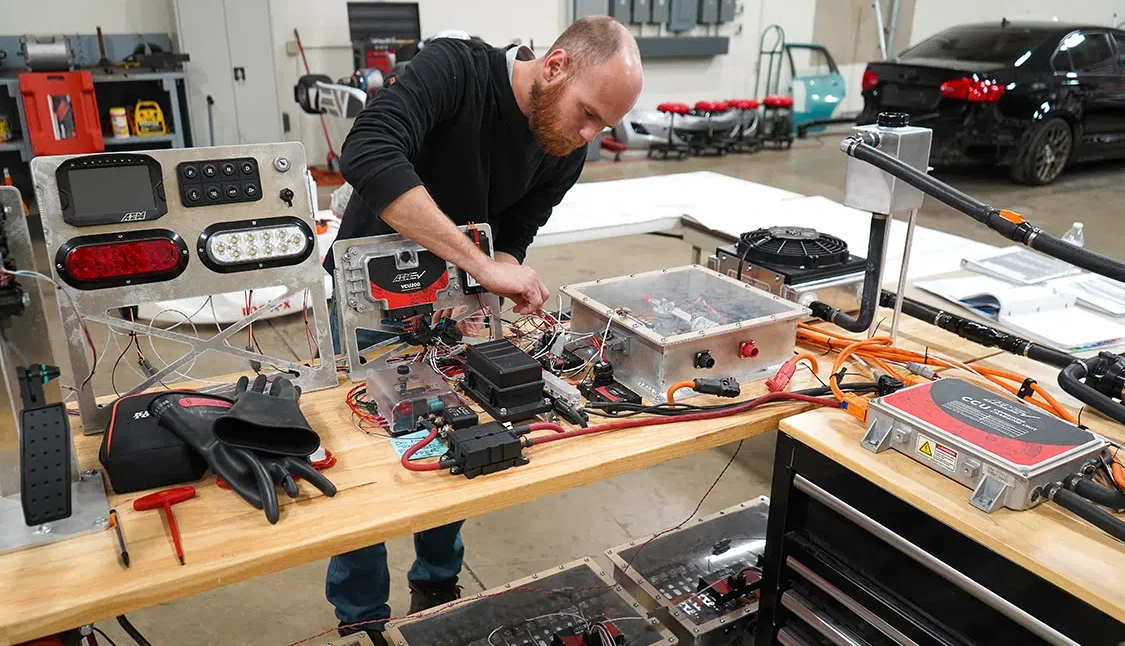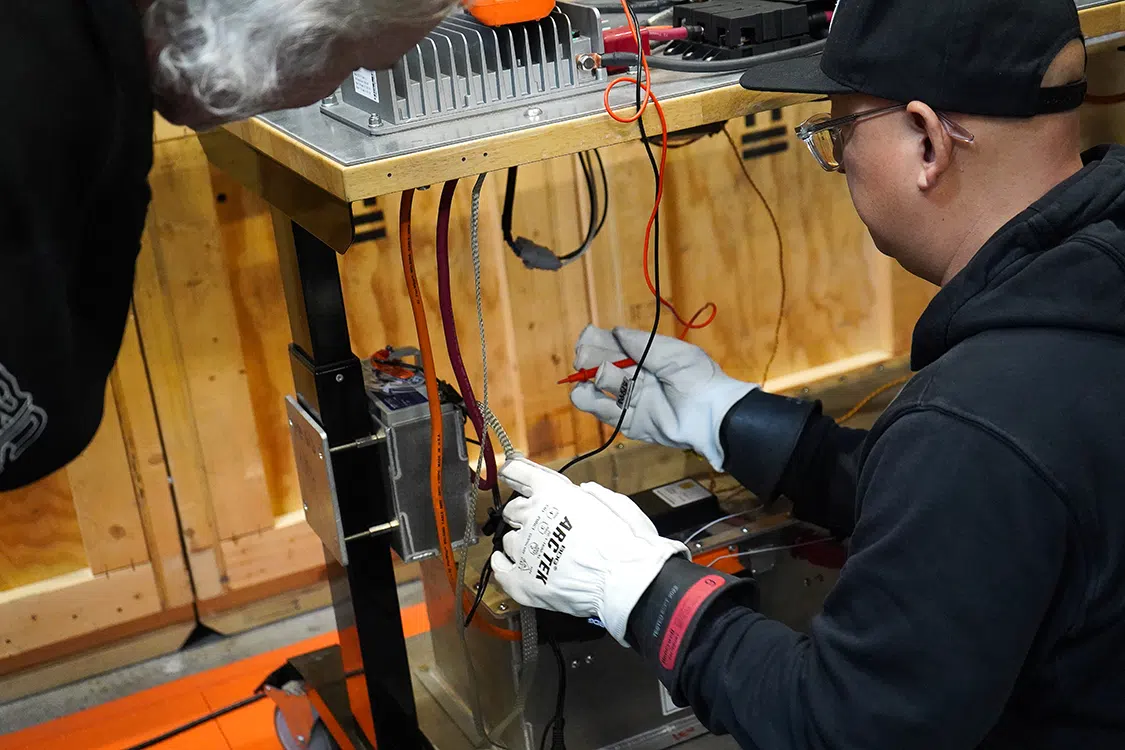 Baily Soto
.
July 01, 2024
.
EV Builders Guide
Baily Soto
.
July 01, 2024
.
EV Builders Guide

The electric vehicle (EV) industry is experiencing rapid growth, leading to a surge in demand for skilled EV technicians. However, the existing discrepancies in job descriptions and experience requirements present challenges for both job seekers and employers in this evolving field.
A closer look at job listing sites like Indeed reveals a lack of standardized descriptions for EV technician roles, complicating the navigation of the industry for potential candidates. Publications like Reuters often misclassify EV technicians as electricians, and if you know anything about the difference between alternating current and direct current, you know those jobs are very different. Similarly, O*NET doesn’t even have a job code for EVSE or EV technicians! So, organizations like Clean Fuels Michigan have been working toward establishing clear standards to streamline the hiring process and ensure that all professionals in the field possess the necessary skills and qualifications, but broader adoption by job sites and government initiatives is still needed.

The diverse skill sets required for various EV technician roles, ranging from electrical troubleshooting to high-voltage applications, can be overwhelming for aspiring candidates. The current demand for formal education or multiple years of experience in a field with limited training opportunities further complicates access to these roles. While manufacturer-specific training programs like Tesla START and Ford FACT are valuable, there is a critical need for foundational, product-agnostic EV training in the industry.
The diverse skill sets required for various EV technician roles, ranging from electrical troubleshooting to high-voltage applications, can be overwhelming for aspiring candidates.
Non-OEM and STEM training programs, such as Legacy EV’s EV technician bootcamp and project-based learning challenges like Formula SAE, are emerging as solutions to bridge the gap in EV Technician education. These programs emphasize hands-on troubleshooting and problem-solving skills, preparing technicians to think critically and adapt to the complexities of EV maintenance and repair. By immersing technicians in practical challenges, such as designing and building EV components or investigating electrical faults, these opportunities offer a more comprehensive understanding of EV systems and better equip technicians to handle real-world scenarios.
Think about it: Wouldn’t a technician have a deeper understanding of all EVs if they had to actually build and design one? Wouldn’t programming an EV yourself help you troubleshoot an electrical fault in another vehicle? Wouldn’t wiring a battery cell thermistor help you understand how cell taps measure cell health? Being a mechanic or an EV technician who troubleshoots customer vehicles is all about problem-solving, but if your training program comes with all the answers, how are you actually going to learn how to problem solve invisible electrical faults?
As the number of EV certified mechanics in the U.S. remains relatively low, investing in non-OEM EV fundamentals classes, project-based STEM learning, and EV apprenticeships is essential to broaden the pool of skilled professionals in the industry. By prioritizing hands-on troubleshooting education, the EV sector can empower technicians to meet the evolving demands of the market and drive innovation in electric vehicle technology.
…the EV sector can empower technicians to meet the evolving demands of the market and drive innovation in electric vehicle technology.
We use cookies to enhance your browsing experience, serve personalized ads or content, and analyze our traffic. By clicking "Accept All", you consent to our use of cookies. Visit our Cookie Policy for more info.
Notifications
Share Link